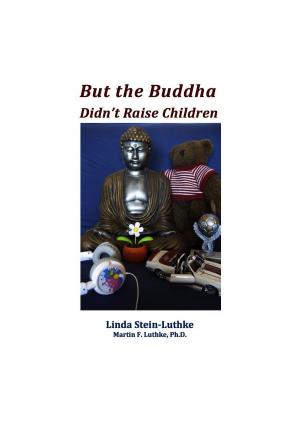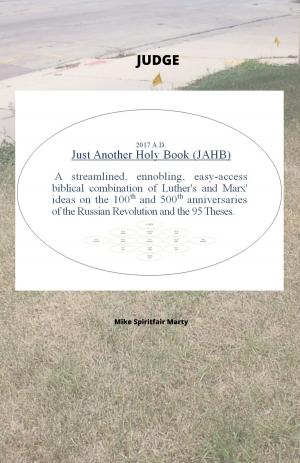Jamila
Dedicated to the 60th Anniversary of the Author's Literary Legacy
Nonfiction, Family & Relationships| Author: | Chingiz Aitmatov, James Riordan | ISBN: | 9780993252952 |
| Publisher: | Aitmatov Academy | Publication: | July 16, 2017 |
| Imprint: | BookBaby | Language: | English |
| Author: | Chingiz Aitmatov, James Riordan |
| ISBN: | 9780993252952 |
| Publisher: | Aitmatov Academy |
| Publication: | July 16, 2017 |
| Imprint: | BookBaby |
| Language: | English |
It is a very romantic love story of Kirghiz girl Jamila to Daniyar, who has been wounded on the battlefield during WWII. Although she was already married to Sadyk and liked his family, she left all her traditions behind for her love.... Jamila is the story of a woman who goes against the traditional tide of her family to be with the man she loves. Chinghiz Aitmatov carries the reader across the Kazakh steppe and weaves a story of love, sadness, hope, tradition, and war. Jamilia is married to a fellow horse breeder in rather dubious circumstances and we are left wondering if she was kidnapped or just befalls a traditional arranged marriage. The marriage is in its infancy when Jamilias' husband, Sadyk is sent off to war. After his departure, Jamila is absorbed into her husband's family and finds solace and emotional support from her husband's younger brother, Seit. Seit and Jamila work together in the fields and transport grain sacks from their village to the small local train station. Jamila is a respected worker and can cast a harsh often fierce shadow. In accordance with local custom, Jamila treats her brother-in-law Seit as a little brother and they have a jovial and friendly relationship. While Seit seems is very much in love with Jamila, she never sees him as more than a close family member. The story takes a different turn with the arrival of Daniyar. When Daniyar arrives in the village he is a man that has been injured both mentally and physically from the horrors of war and as he has no family to care for him he lives on the periphery of village life. Daniyar finds it hard to be accepted by other men in the village and many views his sullenness with suspicion. While regularly working alongside both Seit and Jamila a relationship reluctantly blossoms between Jamila and Daniyar. Aitmatov manages to allow the reader to feel the apprehension, excitement, and fear that the couple must have experienced. Jamila is a married woman in a very traditional culture she must be loyal and remain faithful to her husband and his family above all else. However, as with all good love stories, the heart outweighs the mind and Jamila find herself leaving her loveless marriage and running across the steppe to be with the man she loves. This is a traditional, age-old love story, both beautiful and sad and transports the reader to a time that has long since gone.
It is a very romantic love story of Kirghiz girl Jamila to Daniyar, who has been wounded on the battlefield during WWII. Although she was already married to Sadyk and liked his family, she left all her traditions behind for her love.... Jamila is the story of a woman who goes against the traditional tide of her family to be with the man she loves. Chinghiz Aitmatov carries the reader across the Kazakh steppe and weaves a story of love, sadness, hope, tradition, and war. Jamilia is married to a fellow horse breeder in rather dubious circumstances and we are left wondering if she was kidnapped or just befalls a traditional arranged marriage. The marriage is in its infancy when Jamilias' husband, Sadyk is sent off to war. After his departure, Jamila is absorbed into her husband's family and finds solace and emotional support from her husband's younger brother, Seit. Seit and Jamila work together in the fields and transport grain sacks from their village to the small local train station. Jamila is a respected worker and can cast a harsh often fierce shadow. In accordance with local custom, Jamila treats her brother-in-law Seit as a little brother and they have a jovial and friendly relationship. While Seit seems is very much in love with Jamila, she never sees him as more than a close family member. The story takes a different turn with the arrival of Daniyar. When Daniyar arrives in the village he is a man that has been injured both mentally and physically from the horrors of war and as he has no family to care for him he lives on the periphery of village life. Daniyar finds it hard to be accepted by other men in the village and many views his sullenness with suspicion. While regularly working alongside both Seit and Jamila a relationship reluctantly blossoms between Jamila and Daniyar. Aitmatov manages to allow the reader to feel the apprehension, excitement, and fear that the couple must have experienced. Jamila is a married woman in a very traditional culture she must be loyal and remain faithful to her husband and his family above all else. However, as with all good love stories, the heart outweighs the mind and Jamila find herself leaving her loveless marriage and running across the steppe to be with the man she loves. This is a traditional, age-old love story, both beautiful and sad and transports the reader to a time that has long since gone.















